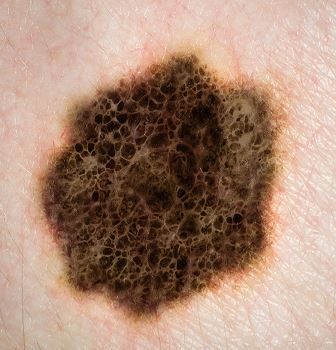MEDI4736 for Melanoma Appears to Be Safe With Durable Clinical Activity
MEDI4736 appears to have an acceptable safety profile and durable clinical activity, according to a new dose-escalation study.
Image courtesy of Shutterstock

MEDI4736 appears to have an acceptable safety profile and durable clinical activity, according to a new dose-escalation study. This agent is a monoclonal antibody directed against B7 homolog 1; programmed cell death ligand 1 (B7H1) with potential immunostimulating activity. It is now being tested in combination with other agents to combat melanoma and several other cancers.
AstraZeneca and Novartis have collaborated to create a three-drug combo for melanoma. The combination therapy consists of two drugs, Tafinlar (dabrafenib) and Mekinist (trametinib), and an immune-therapy drug, MED14736 (AstraZeneca). The novel drug combination was found to be safe in an early-stage trial and data will be presented at this year's American Society of Clinical Oncology (ASCO) meeting in Chicago, May 29-June 2, 2015.
Melanoma patients with BRAF and MEK mutation-positive tumors may experience rapid disease growth. Having agents that target these proteins have been successful in the area of melanoma. While MEK inhibitors like trametinib when combined with a BRAF inhibitor such as dabrafenib have already demonstrated efficacy in melanoma trials, the doublet therapy hasn't proven to be very successful when combined with another immune-based therapy. This is where MEDI4736 comes into play.
The three-drug combination of MED14736 with BRAF and MEK inhibitors did indeed prove to be safe in a recent trial involving 50 melanoma test subjects. “We wanted to see if we could add immune therapy on top of what was becoming the standard of care," said Mohammad Dar, vice president of clinical development in oncology at AstraZeneca’s biotech division, MedImmune.
While administering various treatment combinations, participants in this trial experienced manageable side effects such as fatigue, nausea, and/or fever. Additional study data will be presented at the upcoming ASCO meeting.
Tackling this disease on all fronts may offer melanoma patients a chance to fight with powerful drug combinations and minimal side effects.
References:
- Ishmael H. (2015). AstraZeneca plc (ADR), Novartis AG Combo Melanoma Drug Deemed Safe In Early-Stage Trial. Bidness Etc.
- Staley O. (2015). AstraZeneca-Novartis Three-Drug Melanoma Treatment Found Safe. Bloombery Business.